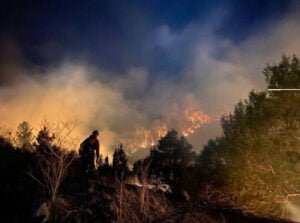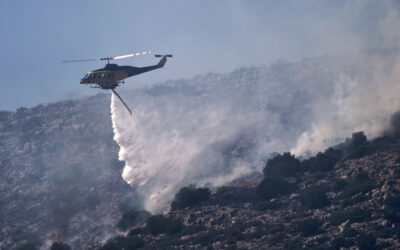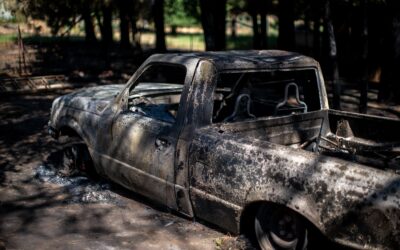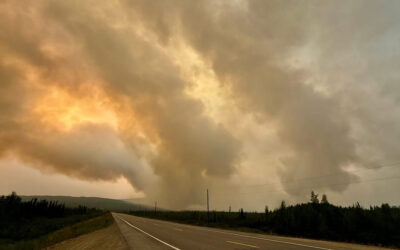The study, which analyzed sales of private timberland over 17 years along with wildfire and drought data, found that most of the losses were not due to forests burning directly but the perception that forests could burn due to neighboring fires.

File photo of Hotshots Conducting Fire Operations at Hermit Peak. (Photo: Bureau of Land Management))
“This study shows that climate change is already reducing the value of western forests,” said Oregon State economist and study co-author David Lewis. “This isn’t a hypothetical future effect. These are damages that have already happened because it is riskier to hold assets like timberland.”
Large catastrophic wildfires have become more frequent across the West Coast and in Washington in the last two decades. The study shows that forestlands have lost economic value because of the direct effects of drought and wildfire and the shift in landowner perceptions amid climate change.
That’s especially relevant for Western Washington and Oregon, among the nation’s major producers of Douglas fir due to the area’s mild and wet climate, said Yuhan Wang, Oregon State postdoctoral scholar and study co-author.
“Our results basically show that those large wildfires and drought stresses have a negative impact on the private timberland prices in this region,” Wang said.
The study, published last month in the Journal of Environmental Economics and Management, analyzed a dataset of 9,000 sales of privately owned timberland between 2004 and 2020 in the three states and then linked the transactions with data on wildfires and drought stress.
On the West Coast, about one-third of all forests are privately owned while the rest is owned by federal, state and local governments. However, since the 1990s when public forest management moved away from harvesting trees, most of the timber harvested and nearly all of the timberland that is bought and sold is privately owned.
The study found that drought stresses have reduced the economic value of timberland by 1% on average while large wildfires have reduced values by an additional 8.7% over the past two decades.
While most of the acreage burned by large wildfires occurs on nonforested land like shrub land and public forestland, private forestland is often “intermixed” with public forestland, meaning wildfires are still concerning to timber companies, Wang said.
To analyze wildfire risk, the researchers looked at whether wildfires within 15 kilometers of a property affected sales prices and found that large wildfires impacted the price even if the land itself was not damaged in the fire. Researchers found that wildfires more than 15 kilometers away from private forestland did not have an impact on sales prices, statistically.
Notably, a bulk of the losses associated with wildfire — 7.4% of the 8.7% — were not due to direct damage of private timberland but due to an increased sense of risk of investing in timberland and landowner’s changed expectations due to more frequent neighboring fires.
The study also divided Washington’s economic losses by whether the land was west or east of the Cascades. In Western Washington, drought stress led to a $50 million loss in timberland value and large wildfires caused a $1.22 billion loss in value, totaling about $1.3 billion. East of the Cascades, large wildfire and drought stress made up $600 million and $1.38 billion of the losses, respectively, totaling about $2 billion.
The $11.2 billion loss across the three states represents about a 10% reduction in the overall value of private timberland. The researchers estimate about half of that reduction is due to climate change, based on other studies that measure the impact of human-caused climate change on wildfires in the western U.S.
Northern Arizona University economics professor Julie Mueller said the study is an “excellent contribution” in a “highly reputable” journal and shows that wildfires have indirect economic impacts outside of the costs of fire suppression.
Some of Mueller’s studies on the impact of wildfires and floods, due to burned forests, on home prices were cited in the Oregon State study.
“What they did here that’s really different is that they are adding a cost to the change of human perception of value,” she said. ” … It’s an additional cost of climate change that it is changing how we view the value of our forests.”
___
(c)2023 The Seattle Times
Visit The Seattle Times at www.seattletimes.com
Distributed by Tribune Content Agency, LLC.




